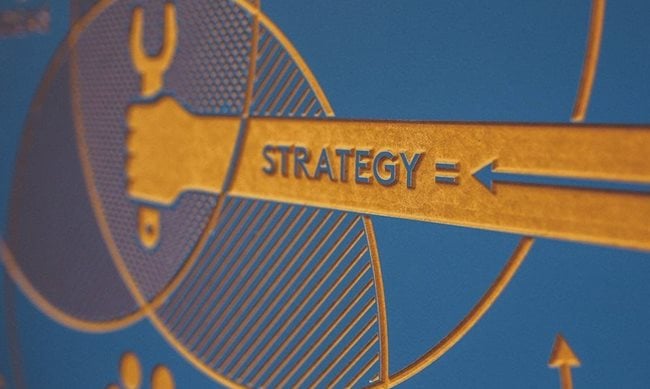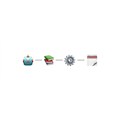Make flexibility key to every successful marketing strategy

You can have the best marketing strategy in the world, but if it doesn’t allow you to take advantage of an opportunity in almost real time, or change your messaging based on fluctuating market conditions, it won’t be successful for long.
Changes in consumer behaviour or new competitive offerings can make any good marketing strategy obsolete, but the ability to adapt allows businesses to respond to problems and seize new opportunities the moment they arise. Here is how modern communications platforms help businesses identify opportunities and respond with flexibility to give them a competitive advantage.
Marketing with mobility
Considering that around 20% of consumers check their phones more than 50 times a day, we cannot underestimate the value of mobile marketing in today’s business environment. Because so many customers use their phones to communicate with people and brands, browse for products and services, or make online payments, many businesses are taking a ‘mobile-first’ approach to meet users on their preferred communication channels.
But marketing on mobile platforms is constantly changing, and businesses that don’t have flexible marketing strategies won’t be able to take advantage of new features. For example, WhatsApp recently released a new feature that allows businesses to add a ‘Send Message’ button to their ads, opening a conversation in WhatsApp when potential customers click on it.
This offers customers the convenience of starting conversations directly relating to a particular product, giving businesses better leads and faster customer interactions.
Businesses must also understand that customers aren’t just on one channel. Your customers are used to an omnichannel experience, and brands that have the flexibility to seamlessly communicate with these customers across channels are the ones that will provide the best customer experience.
Whether customers prefer using email, SMS, WhatsApp, Facebook Messenger, or Apple Business Chat, they expect businesses to meet them there. Managing customer interactions on a wide variety of platforms is essential but it can quickly become overly complicated. Smart tools like a mobile marketing cloud bring multiple communication streams to one easy-to-use platform where businesses can manage customer interactions with ease, providing all the benefits of flexible communication with none of the hassle of managing disparate channels.
Responding to customer needs
The pandemic has certainly taught us to plan for unpredictability, and those who respond first to change will often be most successful.
For example, when lockdown restrictions made it difficult for Business and Arts South Africa (BASA) to recruit young artists to a programme, the organisation turned the challenge into an opportunity. They pivoted to a WhatsApp Chatbot solution, and ended up receiving 207% more high-quality applicants from the recruitment drive. The solution was more inclusive and low cost than their previous recruitment methods, showing that there are real benefits to be gained from providing solutions that respond to customer or user needs.
With the right insights, businesses can achieve flexibility by quickly adjusting marketing campaigns. A customer data platform (CDP) links different sources of customer data and allows you to have a bird’s eye view of customer behaviour and preferences. You can change your marketing strategies based on emerging trends or current events that relate to specific customer profiles.
With PoPIA now enforceable, businesses need to ensure that their marketing strategies remain compliant and that they are only communicating with users who have opted in to certain types of communication. Tools like a Mobile Marketing Cloud enable this, with the ability to gather opt-ins from customers with time stamps attached – a requirement of PoPIA.
Because the performance results of every campaign are transferred to the CDP, businesses can immediately see which campaigns are successful and use those insights to adjust marketing efforts. If businesses can’t do this, they’ll absolutely be missing out on marketing and optimising opportunities.
Automated agility
It might seem like automation and flexibility are at odds with one another, but the right marketing automation software should be able to give you the best of both. Companies can convert data into action and create hyper-personalised, automated campaigns at every stage of a customer’s journey. From welcome programmes to lead generation campaigns, marketing automation gives businesses the flexibility to adjust to changes and the ability to respond at scale.
With branching workflows, marketers can create different paths for customers based on unique filters or interactions, such as people who haven’t opened a mail for a certain period, are interested in a certain topic, or have an upcoming birthday. Marketing teams can also boost customer retention with re-engagement workflows, improving conversion rates by making sure no customer is left behind.
Adaptable customer support
Reaching modern customers requires marketing with flexibility, but businesses also need to be able to retain those customers with flexible support services. Most customers today expect excellent support service. In fact, a 2020 survey showed that 96% of people will consider switching to a competitor after receiving poor customer service.
Chatbots give businesses the flexibility to serve any number of prospects and customers at any time and on any channel, while keeping costs low. When multiple customers encounter the same issue, support teams can quickly become overwhelmed by the sudden and unpredictable influx of support calls. Chatbots take the pressure off support agents by being able to handle millions of conversations at once, providing immediate answers to common questions. But they also enable flexibility and a seamless handover to a human agent when things get complicated.
Long-term goals, short-term wins
Long-term marketing goals should focus on the bigger picture, but it’s important to remember that these goals are also accomplished through every short-term win. With all the innovative marketing tools out there, businesses no longer have to make lagging marketing decisions or carve their campaigns in stone.
Modern communication platforms allow us to change and optimise our marketing efforts in real time, providing opportunities for improvement every step of the way. With that kind of flexibility, success is only a matter of identifying opportunities and making a few smart changes.


